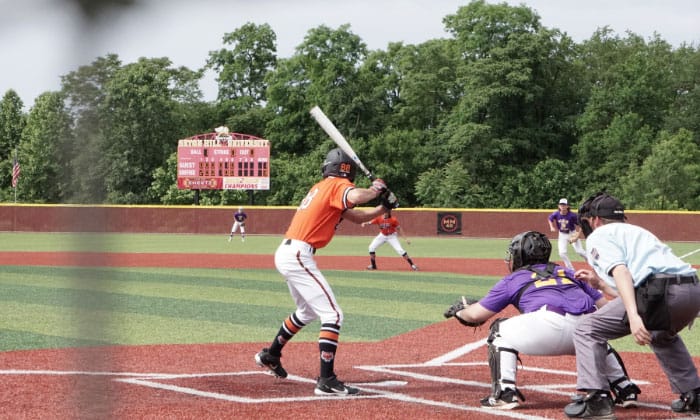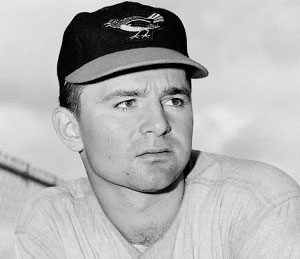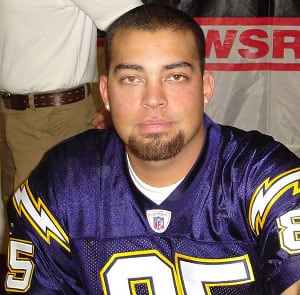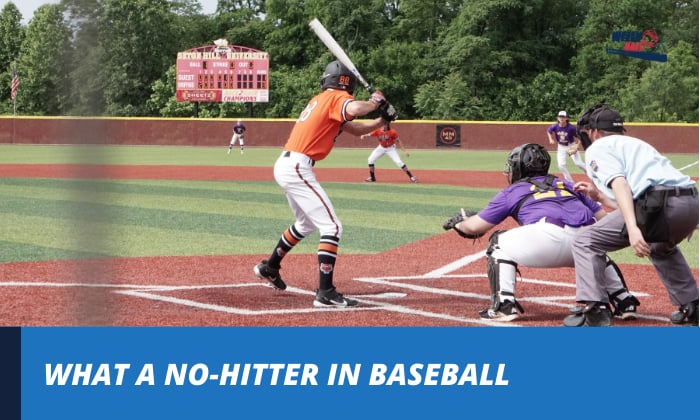The hype and the bravos of many baseball fans when a batter misses to hit the first pitch might have made you wonder if they are just merely cheering or predicting a team’s chances of winning.
FPS is another baseball metric like ERA or WHIP that evaluates the performance and ability of baseball pitchers. The higher the FPS pitching stat, the greater the likelihood of winning a game. What is FPS in baseball? Read on for more interesting facts.
Contents
What Does FPS Stand for?
FPS baseball stat or the first pitch strike occurs when the pitcher pitches a ball toward the batter who fails to hit it, thereby receiving a strike. It lowers the chances of securing a base or making a score of the opposing team’s batter.
How Does It Work?
The first pitch strike happens when the pitcher strikes out the batter at the first pitch. The higher the number of strikes, the greater the number of outs a pitcher can produce.
When the pitcher successfully strikes out a batter, it will be called a “first-pitch strike.” Furthermore, due to those outs, there will be fewer pitches in the inning.
What is the Importance of FPS?
Now you might be thinking, how does FPS contribute to the probability of winning a game?
A pitcher who starts an at-bat with a strike has a 92% chance of striking out a batter. This gives the pitcher an early edge in the count.
FPS increases the pitcher’s confidence, making it easier to strike out the batter on the second and third pitches. It also boosts the defensive team’s morale and concentration on the game.
Meanwhile, FPS tends to increase the tension and aggressiveness on the part of the batter, which can lead to poor decision-making and errors. They might feel desperate to swing no matter where the ball is and risk getting out early in the count.
What is a Good FPS in Baseball?
The first pitch strike percentage indicates how frequently the pitcher will strike the batter at the first pitch. In other words, it demonstrates a pitcher’s success on the first throw.
A good FPS would be above 58%, the national FPS% average for Major League Baseball (MLB) pitching. In fact, MLB pitchers’ FPS stat is about 57%.
A pitcher should endeavor to reach closer to 80% because this translates to fewer pitches per inning and winning more matches in a game.
After learning FPS meaning, baseball would be a much more entertaining sport for you.
Who Are the Best Score Holders?
Let’s turn to the legends of flamethrowing in baseball history. Here are the three best professional players who hold phenomenal records.
1. Steve Dalkowski
Stephen Louis Dalkowski Jr. is a left-handed leaguer tagged as baseball’s fastest and wildest pitcher. People believed his fastballs could reach 110 mph, maybe even more.
He was known as the “White Lightning” because his four-seam fastballs were practically unhittable. Batters could hear the sound of a speeding ball but could not see it.
From 1957 to 1965, he had 1,396 strikeouts, and over 995 innings pitched. He has a won-loss record of 46-80.
Dalkowski acquired a severe tendon injury in his left elbow, which resulted in the loss of his supersonic pitches. By 1966, he retired from baseball.
2. Joel Zumaya
Joel Martin Sumaya is an American professional baseball pitcher known for his trademark velocity pitches. From 2006 through 2010, he pitched in MLB for the Detroit Tigers.
Zumaya was a right-handed pitcher. His fastest record was at 104.8 mph. He also had an excellent knuckle curve for his off-speed pitches.
Zumaya retired in 2014. Throughout his MLB career, he has a won-loss record of 13-12 and an ERA of 3.05.
3. Walter Johnson
Walter Perry Johnson was an American professional baseball player. He was a right-handed pitcher for the Washington Senators from 1907 to 1927 and played in MLB throughout his 21-year career.
His astonishing record includes 417 wins, 2.17 ERA, 110 shutouts (the most in baseball history), and 3,508 (holds the record for nearly 56 years). He won the American League of Most Valuable Player Award two times and the Triple Crown for pitchers three times.
Frequently Asked Questions
ERA vs. First Pitch Strike: What is the Difference?
ERA indicates the average number of runs a pitcher allows per inning, while FPS represents the rate at which a batter fails to hit the first pitch.
ERA and FPS are inversely related. The lower the ERA, the higher the FPS. In other words, if a pitcher has a high FPS, the number of runs would be fewer.
How fast is a baseball pitch in FPS?
There is no definite figure, but it is estimated to be around 100 miles per hour or more. The fastest pitch ever recorded was at 105.1 mph by Arnold Chapman in 2010.
What are the tips to increase FPS% in baseball?
While there is no shortcut way to increasing FPS%, constant practice will always make you do the trick. Building upper body and lower back muscle strength through exercise helps with high-velocity fastballs.
You may also learn from the techniques and mechanics of the players with excellent FPS and then compare them with yours. Discover your weaknesses and bank more on your strengths.
Conclusion
It’s always mind-boggling to learn some baseball terminologies. We’ve answered what FPS means in baseball in this article. Sure enough, you can already explain it to others.
FPS pitching stat stands for the “first pitch strike.” It measures the performance of a baseball pitcher. The higher the FPS, the fewer base runs and pitches thrown per inning, and the more chances of winning matches in a game.
FPS gives more advantage to the defensive team, boosts the pitcher’s confidence, and helps secure the team’s victory.
If you’re a player, learn the techniques of the baseball legends. Make sure your first pitch counts!

A powerful swing and the ball is flying across the field, just one hit, and we might never forget the thrill it brings. I do not know about you, but I never do. Every baseball game is the chance to compete with others and cooperate with your teammate. It is among my biggest passions.




















